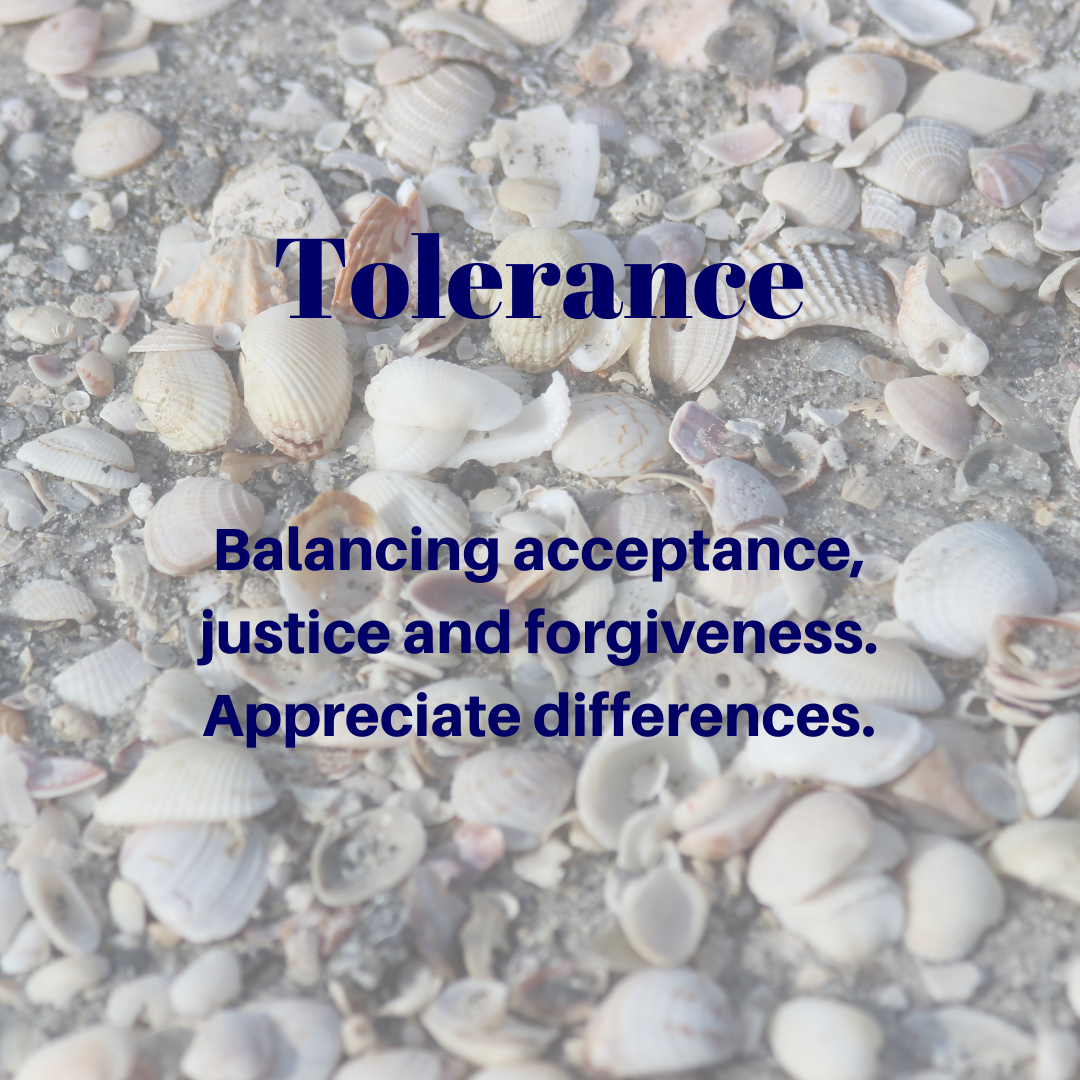Description

Tolerance is the virtue that empowers us to embrace differences with an open heart and an understanding mind. It encourages us to appreciate the richness of diversity, whether in culture, beliefs, or personal temperaments. Tolerance frees us from the urge to judge others harshly, allowing us instead to recognize the shared humanity we all possess—the feelings, hopes, and dreams that unite us.
Tolerance is about patience and forgiveness, especially when others fall short of expectations or make mistakes. It doesn’t mean we accept harmful behavior, but it helps us discern when to extend grace and when to stand firm for justice. This balance is key to fostering both personal peace and harmony in relationships.
In a world filled with differing perspectives and experiences, tolerance provides a path to unity. It helps us to let go of the need for control or perfection and accept life’s imperfections with humor and grace. In doing so, tolerance enables us to move through life with resilience, embracing its joys and pains with equal measure.
By practicing tolerance, we cultivate a deep well of compassion and understanding that strengthens communities and relationships, allowing us to build a more inclusive and loving world.
Affirmations for Tolerance
1. I honor and appreciate differences in others.
This helps shift your focus from judgment to curiosity, fostering respect for diversity.
2. I release the need to control how others think or act.
Letting go of control allows space for acceptance, reducing frustration with others’ behaviors.
3. I choose to listen with an open mind and heart.
Active listening without judgment creates understanding and empathy, key components of tolerance.
4. I practice patience when faced with things I do not understand.
Patience allows you to reflect and respond thoughtfully rather than impulsively.
5. I am kind and compassionate, even in challenging situations.
Choosing kindness, especially in difficult moments, strengthens tolerance and helps maintain harmony.
6. I embrace differences as opportunities to learn and grow.
Viewing diversity as a learning opportunity broadens your perspective and deepens your acceptance.
7. I forgive others for their mistakes and offer them grace.
Forgiveness keeps you from holding on to resentment, allowing you to move forward peacefully.
8. I focus on what unites us rather than what divides us.
This affirmation builds bridges of connection, encouraging unity despite differences.
9. I accept that not everything will go the way I want it to.
Acceptance of life’s unpredictability fosters tolerance for situations beyond your control.
10. I give myself and others the space to be imperfect.
Recognizing that perfection is not the goal allows you to be more tolerant of both your own and others shortcomings.
Quotes
“Think for yourself and let others enjoy the privilege of doing so too.” — Voltaire, “Essay on Tolerance” (1763)
“Anger and intolerance are the enemies of correct understanding.” — Mahatma Gandhi
“In the practice of tolerance, one’s enemy is the best teacher.” — Dalai Lama
Tolerance In Family Life
Tolerance within a family is a beacon of understanding and harmony. It manifests as a genuine respect for each member’s unique perspectives, beliefs, and choices, even when they differ from one’s own. Tolerance fosters an environment where disagreements are approached with patience and a willingness to find common ground, demonstrated through open and empathetic communication. It means recognizing that diversity of thought can enrich the family’s collective wisdom and nurture individual growth.
In practicing tolerance, family members embrace each other’s quirks and idiosyncrasies, creating a nurturing and accepting home where love and acceptance reign supreme.
Balancing Virtues
To maintain a balanced tolerance, several virtues come to the rescue:
-
-
- Courage: Courage is the antidote to excessive tolerance. It empowers individuals to stand up for justice, confront wrongdoing, and assert their values when needed. It ensures that tolerance does not translate into passivity in the face of injustice.
- Discernment: Discernment helps individuals differentiate between situations where tolerance is appropriate and instances where intervention is necessary. It ensures that tolerance is not indiscriminate but directed towards the right causes.
- Empathy: Empathy enables individuals to put themselves in others’ shoes, fostering a deeper understanding of different perspectives and experiences. It encourages tolerance by helping individuals relate to the feelings and struggles of others.
- Patience: Patience complements tolerance by allowing individuals to gradually acclimate to diverse viewpoints and cultures. It ensures that the acceptance process is not rushed, allowing understanding and harmonious coexistence to flourish.
-
Striking this balance enables us to celebrate our shared humanity while honoring the beautiful diversity that enriches our lives.

